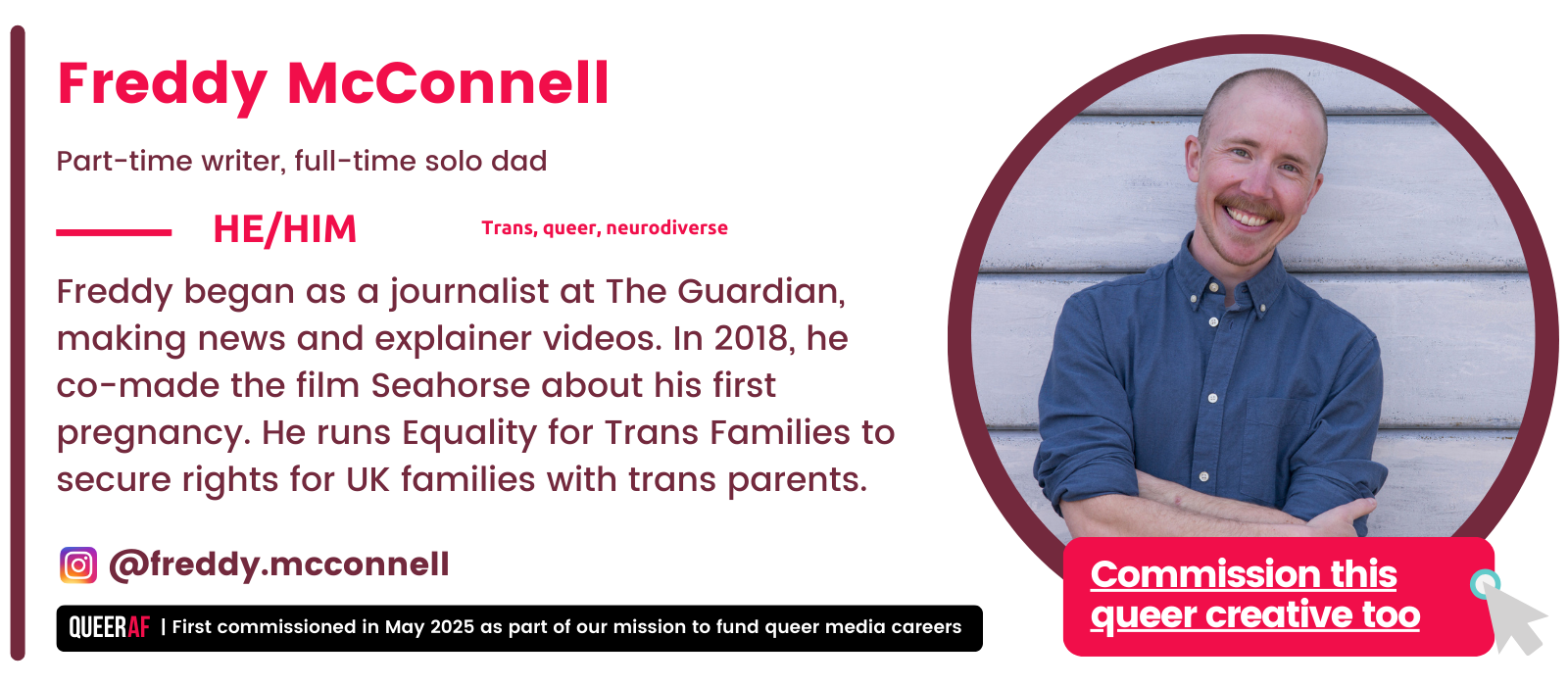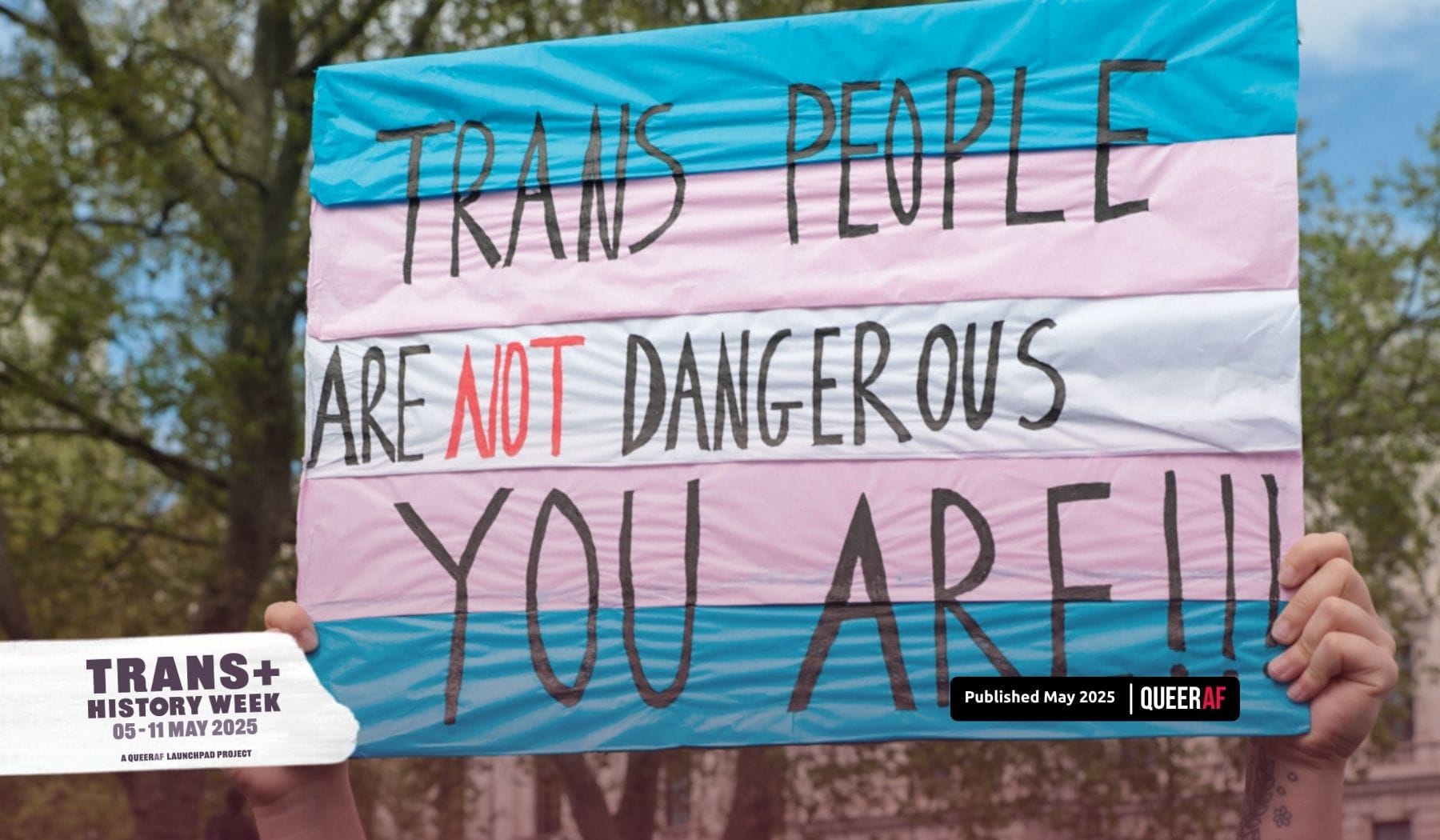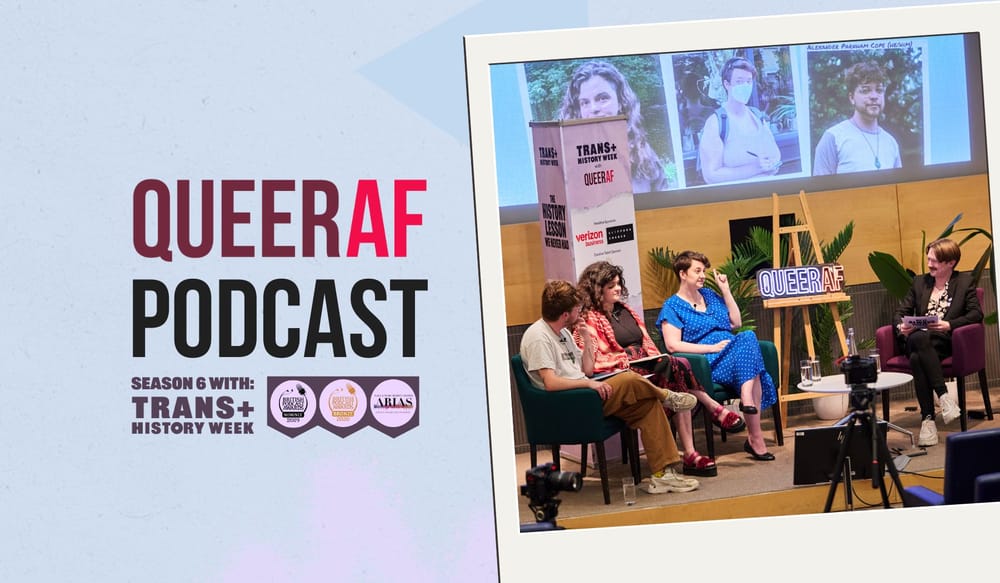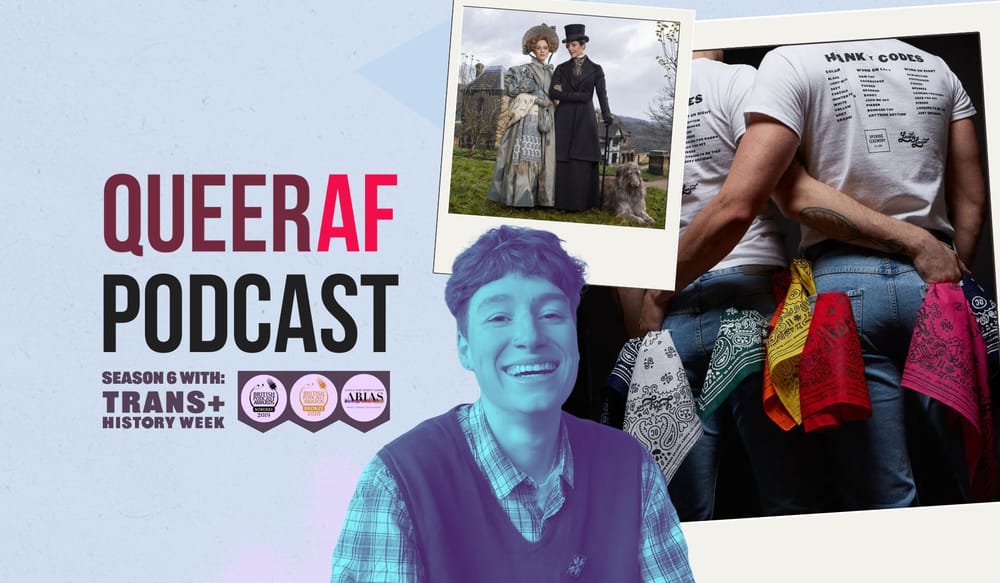
On 16 April 2025, the UK Supreme Court delivered a decision on the meaning of “woman” in the Equality Act 2010. It was the first of a tumultuous set of events for the Trans+ community which we’re only just getting our heads around. But what we haven’t yet had time to work out is - how did we get here?
We live on the southeast coast, but that morning, my children and I were in London, the eldest with friends out east and my 3-year-old and I heading for the middle of town.
It was sunny and warm, so we took our first-ever ride on the river taxi. I was distracted, however, by the Supreme Court livestream in one ear, taking my attention away from my youngest and their happy bafflement at the city from the water.
Like all Trans+ people, intersex people and many others, the judgement had the potential to affect my family, my work, my legal identity and some of my fundamental rights. I couldn’t not listen.
This is what being trans in the UK is like now. There are too few of us to make a fuss commensurate with the scale of what is being heaped upon us, much less stop it, and we cannot pull the matchsticks from our eyelids.
Our lives are this queasy clash of realities: the normalcy of our every day vs the waking nightmare of staring, powerless, as media, public bodies, governments and the courts succumb, over eight creeping years, to the manipulation of anti-trans ideologues and the moral panic they put in motion.
Collectively, these parties – some knowingly, others less so – have left us and our loved ones, mostly figuratively, for dead.
As my three-year-old shrieks at the looming Tower Bridge, the other reality wrestles back control, and I try to hold on.
In the days that followed, mixed with heavy sadness, I was angry at the justices’ “reassurance” that trans people had not lost either the case or any legal protections.
This assertion comes across as both arrogant and ignorant. According to numerous lawyers and experts I have spoken to, on a plain reading of the current legal status of trans people in the UK and decades of case law that led to it, it is also simply false.
To reassure ignores a risk that any truly objective person would identify: that ideologues in public bodies will apply the decision in disingenuous, extremist terms. Of course, the Equality and Human Rights Commission (inexplicably still led by a Liz Truss appointee) immediately rushed to do just that.
Finally, reassurance ignores a less obvious, more insidious danger, which Keir Starmer also wasted no time speaking into life. “The Supreme Court has answered that question”, he said, when asked whether a trans woman is a woman, or, in legal terms, whether trans people still have access to full legal gender recognition.
He is implying that the Supreme Court having answered means the government itself either cannot or no longer has to, both of which are, to put it mildly, untrue. This government could begin amending the Equality Act today, i.e. genuinely clarify it to reinstate trans people’s proper rights. We must remind Labour MPs of this at every single opportunity.
Less than a decade ago, this ruling and its separate-but-equal consequences were unthinkable, not just by trans people but by mainstream society and, crucially, by successive Labour and Tory governments.
All public and political conversation prior to roughly 2018 was of more integration and protection for trans people, not because we demanded it but because it was deemed right and sensible. It was not a utopia, it was just normal.
Those closely involved with writing the Equality Act 2010 have made clear that it did include some trans men and women under the definitions of “man” and “woman”.
In light of the Supreme Court decision, however, I have wondered: should legislators have made the act even more explicit? Were they naive for thinking everything would remain normal?
In short: no. No one could have seen this coming. Law cannot be written for a future where a country’s institutions lose their collective mind.
What changed? Trans people did not. There were a few more of us, but still a relatively minuscule number, whether adult or child, rationally explained by growing awareness, connectedness and mainstream acceptance.
What changed were things beyond our control. It started with relentless media attention that inflated the novelty, nature and impact of our existence by literal orders of magnitude.
Then, when the mere fact of our varied existence was no longer newsworthy, headlines got darker and weirder. Before long, newspapers claimed trans people were “believing” and “demanding” strange things. We were accused of “banning” some words and “inventing” new ones, like “chest” and “parent”. Evidence for the disturbing claims was never provided, and, on the rare occasion trans experts were asked to contribute, our attempts to debunk them were roundly ignored. Eventually, we gave up (and were accused of not engaging or “deplatforming”).
The media’s reshaping of the public’s perception of trans people has been rapid and absolute. Do not blame or question yourself if it has felt devastating to your psyche and quality of life.
As moral panic, it has been so effective that even credible journalists will now point to trans people’s alleged unreasonableness as tragic justification for our recent elevation to public enemy no.1. It is all our fault, they commentate, without a hint of irony or self-awareness.
Away from the headlines, a hardcore of anti-trans ideologues on the fringes of feminism and queer life since the 1970s saw an opportunity.
In 2017, they got organised enough to oppose Theresa May’s reforms to the GRA, which were, at first, totally uncontroversial (and remain so across the Western world). The antis efforts went surprisingly well because no one saw it coming.
They were also strategic with language. Instead of saying, “ew, we don’t like trans people”, they coined woolly dog whistle phrases like “protect women and girls”, which only implied trans exclusion, alongside doublespeak like “trans ideology” and “gender critical”.
The media, for aforementioned reasons, lapped it up. Enough influential people, instead of saying: “You’ve got priors, stop making things up,” said: “Gosh, that’s scary, say more.”
Perhaps most significantly, wealthy, right-wing Christian organisations reached out from across the Atlantic to help shape this shower of anti-trans activists into the politically-savvy, deep-pocketed lobbying force that has now thoroughly infiltrated UK public life.
Yet even the most committed ‘phobes could only ever have imagined victories like that of the Supreme Court ruling, with the country’s most senior justices tying themselves in semantic knots to facilitate their goals or, as the Heinous Loser unashamedly put it, their “plan”.
Right now, it is hard to know what to do, individually or collectively. Trans people seemingly lack any form of real power, while those committed to driving us from public life accrue exponentially more, enough to cast a spell over a purportedly centre-left government and the highest court in the land. It is hard to know what to do, but not impossible.
First, we have to acknowledge the fear, not to scare ourselves into inaction, but to feel it and move past it. We need to acknowledge that we are being stripped of rights, safety, and freedoms, and that this may just be the beginning.
Then, we need to understand. There are already several expert analyses of the Supreme Court ruling; this is a good place to start. Informing yourself and others is an act of resistance.
Soon, more of us – trans people and allies – need to organise around a clear goal, if not a single campaign.
Reinstating the rights the Supreme Court apparently did not even realise they were taking away is an obvious place to start (and it is already happening). In a few fundamental ways, we are not powerless, and we are not alone.
There is that saying about the baddies winning the battle but not the war. If trans and queer people are known for anything, it is defending ourselves and each other when no one else will.
It is also for resisting private, public and state-sponsored violence despite always being in the minority; it is for being impossible to keep down when we choose political solidarity over any kind of social, cultural or economic division; it is for being a persistent and consistent fact of nature, transcending time and place.
In more ways than one, we have been here before. We have many forebears and elders to learn from. Struggle and survival are in our bones. This is not to deny how dire this moment is or to minimise the threats posed to individuals’ safety and survival. We all know that there have been and will be lives lost.
Eventually, though, reality will catch up with this uniquely British aberration of mainstream anti-trans ideology and, in some equally British way, knock it on the head. History will not be kind to those who signed up or turned a blind eye – keep those receipts.
They will not win because, for all these reasons and more, they cannot win. Ultimately, even if everyone else wants to let them, we will not.

A note from Freddy McConnell:
As overwhelming as it feels, the anti-trans backlash we are currently enduring exists for the most basic reasons.
It is the stuff of human frailty: fear, prejudice, cynicism, contingent justice and, regrettably, the ick. But because it is basic, we understand full-well what is happening. And we are not petrified. We are exhausted and bruised, but we are alert. We stand in solidarity. We are busy AF.
QueerAF and Trans+ History Week are proof of all that.
The newsletter you get is vital every Saturday, but this bumper week’s edition - with seven new history articles sent across Trans+ History Week - carries greater meaning and power than ever. It brings together urgent, expert reporting and instructive, affirming histories.
Trans+ History Week connects us in ways both practical and spiritual, both of which matter in times of unique stress. It reminds us we’re not alone, not new, and that we resisted and persisted well before we had the ability to even know either of these things.
If you already subscribe, you know: this is where the best writing on and clearest analysis of the Supreme Court ruling is found — more informed, more grounded, and more compassionate than anything in mainstream UK media.
So: support it. Subscribe. Upgrade and become a paying member. Donate if you can. Share it with your family and friends — especially those who care, but don’t yet understand what’s really happening.
Because we’re not just fighting for ourselves. We are warning of what’s to come. We are holding the line. Help us fight back.











